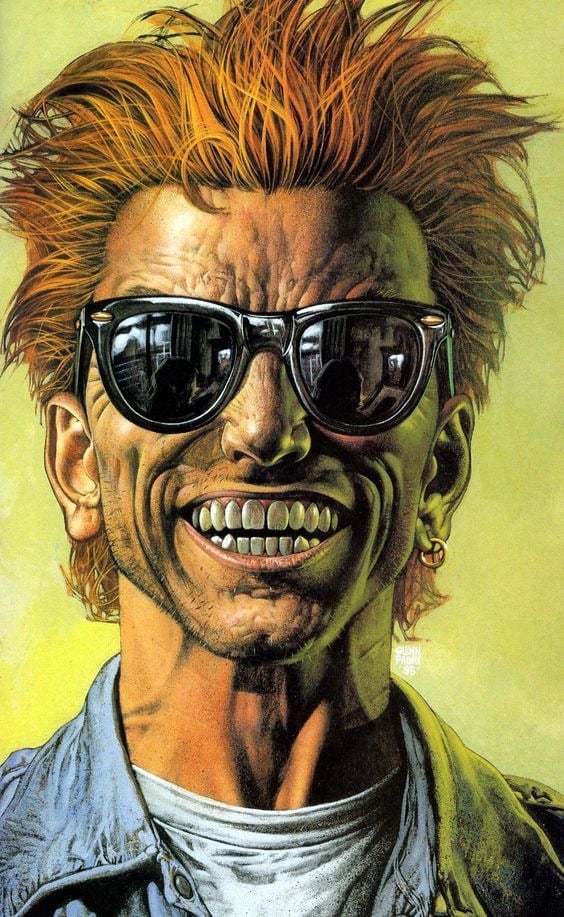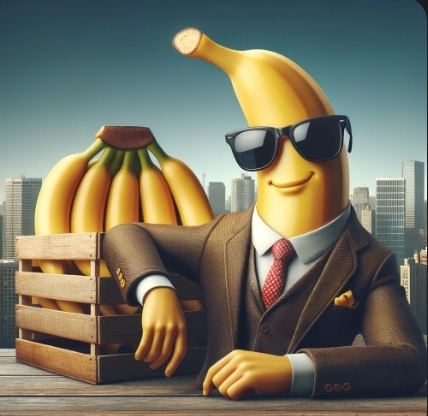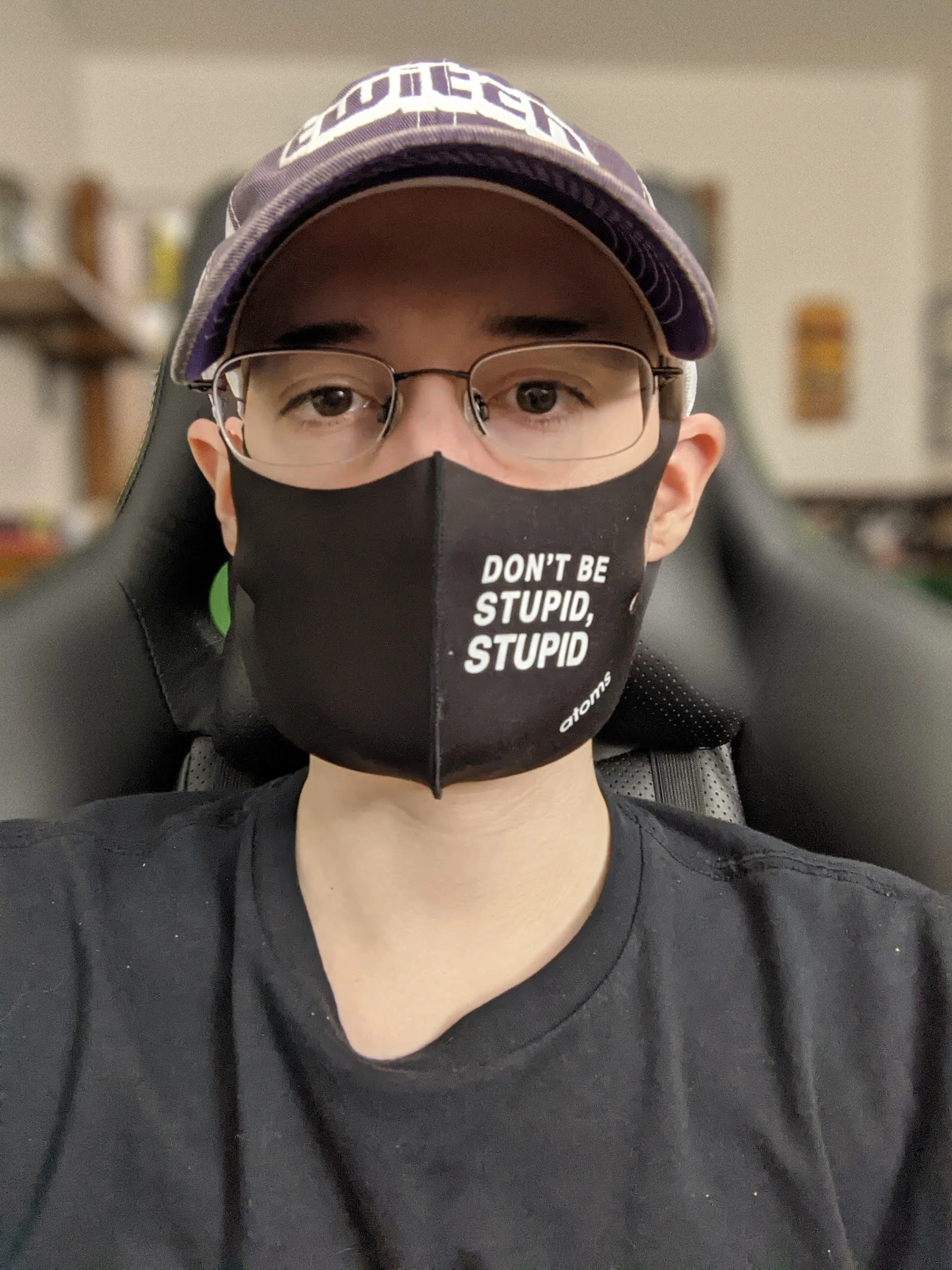Nice hearing about something Poland is doing right!
Poland does many things right
I’m sure it does. The thing is I mostly hear about the things Poland does wrong. That’s what trends to break into international news. That’s why I worded my comment the way I did.
…as long as it doesn’t offend the church.
Agree 100%. It’s just an unhealthy dose of sugar and caffeine, which is hardly regulated.
To be fair, it’s the same amount of sugar as most other sodas and had less caffeine than a typical coffee. The real issue is that a lot of their marketing targets a younger audience who probably shouldn’t be drinking caffeinated drinks yet.
Energy drinks often contain a bunch of other stuff - e.g. Taurine, which isn’t necessarily bad per se, as it eliminates some of the caffeine side effects (jitteriness), but that may arguably make it more addictive.
The most popular energy drinks in Sweden are sugar free but contain 180mg of caffeine, that’s two large cups of coffee.
A tall coffee at Starbucks has about 230mg of caffeine and that’s fairly typical. A large coffee at 90mg would either be 2/3rds decaf or incredibly watery.
eh, fair enough. teenage energy drink addiction has caused me years of insomnia. we already have an age restriction on energy drinks in the UK, though it’s 16 not 18
Reading those comments drops your IQ by 5 points. Now calculate the economic impact that will have… You can’t because reading this comment drops your IQ by another 5 points :(
the whole point of banning energy drink sales to minors is that minors are at a higher increase of heart issues because their body can’t handle caffeine like adults. but sure, everyone else is the idiot on this one and “the economy” is definitely more important than kids’ health
Idk what y’all think but honestly I’d say these little cans of poison need a warning lable like cigarettes as well
Absolutely a good thing. As someone who drank a lot of energy drinks in high school, it was not worth it.
Sadly, large amounts of caffeine were a way to control my ADHD when I couldn’t afford medication. I still usually have an energy drink daily, even though I’m medicated now. At least that’s less that what I used to do.
Why? I’ve consumed caffeine for a long time without any problems…genuinely asking
It’s not only much cheaper to not have a caffeine addiction, but it also I think makes me much more present as I don’t need caffeine in the mornings to function, and I get enough sleep. Just seems better to me.
No time for sleep when you either
- Need to work till 17:00 and then also do need to do even more when you’re home
Or
- Party the whole night
I just love super strong flavors. I drink ice water throughout the day after my breakfast, though.
imagine if this whole thing was about cigarettes. id imagine people would be questioning why it wasnt age restricted sooner. caffeine and nicotine are practically the same type of addiction, but one of them is legal for almost anybody to get and the other is getting banned more and more
Caffeine is pretty easy to quit though. Cigarettes aren’t.
Also caffeine isn’t as harmful as cigarettes.
It’s harder to quit than you think for some people. Any addiction can be hard to give up. And you do feel like shit if you stop using caffeine cold turkey after drinking 12 cups of coffee a day.
Sure, but easier than cigarettes
Maybe. I don’t know. I think it depends on the person. I quit cigarettes cold turkey and have never touched another one since. My wife had to quit over months. We both smoked for the same amount of time and smoked about the same number a day.
Now I don’t feel I need to quit caffeine. I have a big mug of tea in the morning and that’s it. But I can see someone who drinks coffee constantly, and I’ve known people like that, having a much harder time quitting that than I did quitting smoking.
What’s the harm from caffeine though?
I grind beans for coffee in the morning, then move onto tea. It’s got L-theanine in as well as caffeine.
https://pubmed.ncbi.nlm.nih.gov/31758301/
When I was a teenager, we were shotgunning beers and smoking hash. A lot worse than a few energy drinks a month.
Only those energy drinks that have artificially added caffeine or taurine are going to have their sales restricted to those over 18.
When I was a teenager, we were shotgunning beers and smoking hash. A lot worse than a few energy drinks a month.
When I was a teenager, I started drinking coffee before I went to school. Everyone was still half asleep and I couldn’t sit still as coffee was my energy drink. I regret it now because I need more caffeine to wake up.
not having caffeine for a few days gives withdrawal effects same as nicotine withdrawal effects (not exactly the same, but same idea if you get what im trying to convey)
Yeah but there aren’t severe short term or long term effects from drinking caffeine, as there are with cigarettes. Insomnia and increased blood pressure but that’s about it, isn’t it? Smoking causes immediate infections and many long terms issues including lots of different types of cancer.
short term effects trouble sleeping, irregular heartbeat, restlessness etc. etc. can trigger panic attacks to people who are prone to them and potentially can kill children
long term are insomnia, constant anxiety (i have witnessed first hand caffeines effects on anxiety. it sucks to see), depression, stomach problems, high blood pressure, and it also has problems when used during pregnancy and breast feeding
so yeah to me its a little weird how normal caffeine is in life to where it is almost unrestricted where i live while nicotine has flavor bans
These symptoms will stop though if you stop drinking caffeine - not necessarily the case with cigarettes.
Probably not a bad idea in light of the Logan Paul situation
Finaly. This should be done in every country, since they are so unhealthy.
So you have a source on why you believe these are unhealthy?
deleted by creator
Yeah I wouldn’t recommend people drink 3 of these controversial energy drinks per day, both for health and financial reasons.
From your link:
Up to 400 milligrams (mg) of caffeine a day appears to be safe for most healthy adults. That’s roughly the amount of caffeine in four cups of brewed coffee, 10 cans of cola or two “energy shot” drinks.
1/3rd of that consumed by a teenager really doesn’t seem that scary, and the page you linked agrees.
Energy drinks (EDs) are sweetened beverages that contain multiple stimulants such as caffeine, guarana, or taurine.
…
The results of this study reveal that the consumption of a single, bodyweight-adjusted ED dosage is linked with a significantly higher median 24-h SBP (+5.26 mmHg) and DBP (+3.45 mmHg), compared to a placebo beverage, in healthy children and adolescents. A meta-analysis by Conen et al. suggests that an increase of 10 mmHg in 24-h SBP is connected with a 27% higher risk for cardiovascular events.38 In addition, a population-based study by Hansen et al. indicates that an increase of 5 mmHg in 24-h DBP is associated with a 27% higher risk for cardiovascular disease.39 Therefore, the ED-induced alterations in the pediatric 24-h blood pressure profile displayed in this study can be considered alarming.
Moreover, chronic ED consumption could result in arterial hypertension and hence increased left ventricular afterload, ultimately leading to left ventricular dysfunction and hypertrophy.16 A previous publication conducted by our department reported a significantly lower cardiac efficiency after acute ED consumption in healthy children and adolescents.16 Furthermore, many EDs contain high amounts of sugar and thus “empty” calories. Chronic ED consumption could therefore lead to the onset of glucose metabolism disorders and aggravate weight gain. As ED consumption is associated with a shorter sleep duration,32 it might additionally increase cardiovascular risk.35 In summary, children and adolescents, particularly those with elevated cardiovascular morbidity (e.g., arterial hypertension, diabetes, excess weight), should be discouraged from consuming EDs. Moreover, minors should be made aware of the potential health risks of excessive ED intake as well as responsible ED consumption behaviors.
The administered ED dosage was bodyweight-adjusted (3 mg caffeine per kilogram of bodyweight) and reflected the maximum daily caffeine intake for healthy children and adolescents as proposed by the EFSA
Yeah I wouldn’t let my kid have that much caffeine for sure.
For my waifish daughter, that’s around 200mg of caffeine which seems really high, outside of what the average person consumes.
By comparison, I’m cool with my kid having about half that, or approximately 1 Monster/Large coffee, once she’s a late teen.
https://en.wikipedia.org/wiki/Monster_Energy#Ingredients caffeine, a lot of it.
That’s 1/3 less caffeine than in a 16oz iced coffee from Dunkin Donuts, and a large is 32oz.
I’m not arguing to give large coffees to 8 year olds but rather that this isn’t as much caffeine as people think it is
Coffee is ilegal for children in most countries, so thease should be as well, but you have a point.
Where is this true? I’ve never heard of this and Google fed me nothin
I just assumed it is. Maybe it isn’t. Idk sorry.
So are they going to ban coffee too for under 18’s as well or pretend that doesn’t contain the same/more caffeine than an energy drink?
If it’s not the caffiene content thats the issue are they going to ban all soft drinks if you are under 18?
deleted by creator
The EU is a regulatory hellscape and it’s one of the biggest problems the EU has.
You know, that wouldn’t bother me, and I’m a big advocate for personal choice and freedom.
It’s not caffeine, it’s sugar
Okay then why does Coca Cola get a pass or chocolate or any kind of confectionery or soft drink?
Energy drinks have so much shit in it to help give you energy/keep you awake. Coke and other sodas have sugar and caffeine. And I never said that the others got a pass, they’re both bad for you, just one is way fucking worse.
good for poland. I have a nickname for “Energy drinks”: Heart attacks in a can. If you want/need caffeine get a coffee or a pop like a normal person.
What is it that makes coffee better for you than an energy drink? I know they usually have an obscene amount of sugar and caffeine, but you can get that in coffee too. I make a drink fairly often with 4 shots of espresso, around 250mg of caffeine. It doesn’t have that much sugar but I could easily add as much as I wanted. A normal cup of coffee would of course be much better than an energy drink, but if energy drinks should have restrictions then why shouldn’t coffee too?
That’s what I don’t understand too. They can just buy a doubletripple espresso and add a lot of sugar to ease the taste. Maybe a bit of cinnamon hint too. What’s the real difference here?
The difference is popular conception. Laws aren’t set based on science. They’re set based on what enough people believe. People believe energy drinks are worse and thus they get regulated whether or not it’s true.
Advertising, audience, and stereotypes play a part in this too. Coffee is stereotypically consumed by older people, whereas energy drinks are often younger people (who older people find annoying). Coffee also has a much greater social acceptance that would make it controversial to regulate. End result is that it’s popular to limit energy drinks but unpopular to point out that coffee has far more caffeine.
Laws aren’t set based on science.
That is big problem in our societies.
Everything makes coffee better. Energy drink is ultra processed crap, coffee is natural and has been used for centuries.
coffee is natural and has been used for centuries.
So is cocaine and opium. Are you joking? I honestly can’t tell.
Probably more that the long term use of coffee is very well understood and researched. And while excessive use of anything is bad, coffee have not displayed issues bad enouhf that it needed regulation.
A “coffee” at starbucks, or an energy drink Have more in common with a dessert, then water filtered thru ground up beans.
And 3 desserts a day have quickly shown health issues.A “coffee” at starbucks, or an energy drink Have more in common with a dessert, then water filtered thru ground up beans.
Is your only problem the sugar? If so, don’t you think some coffee drinks should be regulated as well as energy drinks? That’s essentially my point, I don’t think it makes sense to enforce age restrictions on energy drinks but not on similar products too.
If its the caffeine, then regular coffee isn’t necessarily better than an energy drink anyway. Caffeine content in coffee varies wildly based on numerous different factors. You can make a cup of black coffee with 265mg of caffeine in it, and it would even be cheaper than one with 100mg.
You are comparing coffee to cocaine and I am the one joking ?
Well according to you, being natural and having a long history means its safe. Are you now saying that maybe a substance’s origin has nothing to so with how dangerous it is?
deleted by creator
Cue the black market for buying energy drinks for minors.
deleted by creator
wonder how much of this “energy” comes from cafeine and such compared to how much actually comes from plain’ol deadly addictive sugar…
Does it even matter? It’s clear they are shitty especially for kids.
Well it does to some extent, because maybe they’re just the tip of a wider problem, an easy target that lets conveniently 90+% of the hyper-sugar products, super-highly addictive and harmful, available to children…?
Nanny state shit.
It’s like you want to push people away from the center towards extremism .
No more caffeine for you!
Next step: Poland bans tap-water to under-18s


















